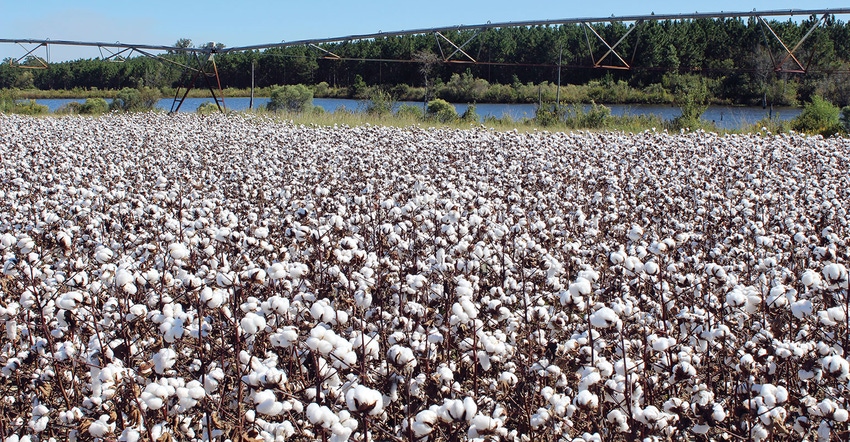
For most U.S. cotton producers, economic sustainability and environmental sustainability go hand in hand. They cannot work toward increasing their farm’s sustainability metrics if they are not sustaining a profit. They will go out of business.
Many farms across the Cotton Belt have been handed down from one generation to the next — each generation working the land with a mindset of preservation and profitability, which they, more than anyone else, know are both required to maintain a multi-generational farm.
Sustainability is driving key purchasing decisions across cotton’s product supply chain. Ramifications of those decisions reverberate back to the farmer. Efforts to conserve, preserve, and produce cotton on a path of sustainable and continuous improvement to meet those decision-making criteria mean little if, at the end of harvest, a profit is not realized.
“Wrangler recognizes the complexities involved with growing cotton in today’s agricultural business environment, the importance of profitability, and how sustainability continues to impact growers’ efforts to achieve both,” says Dr. Jesse Daystar, chief sustainability officer, Cotton Incorporated.
A farm’s sustainability metrics influence those decisions and today, more than ever before, there are many ways to quantify a farm’s sustainability. Denim brand Wrangler recently partnered with farming technology provider MyFarms to underwrite the development of new software features that more easily measure the environmental impact associated with its branded denim products.
“We want to be able to make verifiable claims about the sustainability of the cotton we use each day,” says Roian Atwood, sustainability director for Wrangler. “Growers work diligently to bring a cotton crop to harvest each year, and we want to help them any way we can in their decision-making process. We recognize an across-the-board value in our partnership with MyFarms.”
MyFarms and Wrangler
Founded in 2010, MyFarms builds technology that helps ag retailers, farmers, and consumer brands work together more efficiently through mutual insight into sustainability. Chris Fenning is the founder and managing director of MyFarms. He is also a farmer who spent years studying how other commodity supply chains benefit from sharing data.
After his father, Steve, compiled decades of yield mapping data on their farm, Fenning knew the value of the data and hoped his suppliers would combine it with their product knowledge to help them both make better farming decisions.
“After 15 years and no solutions, I decided to build an electronic bridge between farmers and suppliers with the goal of improving the decision-making process for everyone,” explains Fenning.
The cloud-based MyFarms software helps growers make crop-management decisions by allowing them to anonymously compare their farms’ sustainability metrics against metrics from other cotton operations. All metrics are generated through a pioneering sustainability assessment framework developed by Field to Market: The Alliance for Sustainable Agriculture.
MyFarms and Wrangler are members of Field to Market, and as a qualified data management partner, MyFarms uses the metric outcomes data generated by the Fieldprint Platform to quantify the environmental impact of cotton production for Wrangler, while returning valuable production insights to farmers.
“Wrangler understands how important it is to reduce the reporting burden for farmers,” says Rod Snyder, president of Field to Market. “In addition to measuring the sustainability performance and efficiency of their farms, cotton producers could be creating a host of new data, knowledge, and opportunities for the entire product supply chain.”
Free Subscriptions
For the 2018 harvest season, MyFarms will provide 125 subscriptions to cotton producers who are involved with U.S. cotton initiatives including e3 growers, Texas Alliance for Water Conservation, and others. “As an apparel manufacturer and a long-time customer of U.S. cotton, Wrangler wants to improve the environmental performance of our products,” says Atwood.
“To ask growers to make an additional effort to track and share their farm data, we needed to create something of value for them in return, and that’s one of the key topics in a new paper, ‘From Burden to Benefit: Sustainability Data in the Agricultural Supply Chain’”, co-authored by Wrangler and MyFarms.”
The paper is the second in the Wrangler Science & Conservation series. It shares best practices for protecting data privacy and strengthening supply chain relationships around common sustainability goals.
About the Author(s)
You May Also Like




